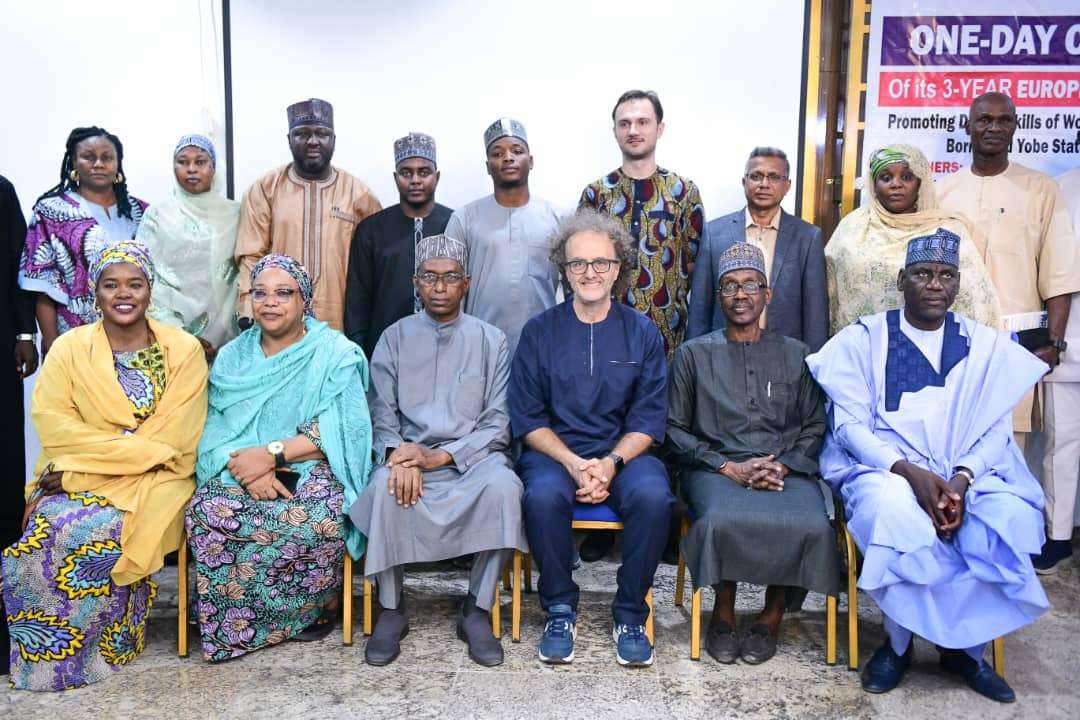…as FG pegs minimum admission age into tertiary institutions at 16
…declares admission outside CAPS illegal
The Joint Admissions and Matriculation Board (JAMB) alongside heads of tertiary institutions and other key stakeholders have fixed the minimum admissible scores for the 2024/2025 academic session into Nigerian universities at 150, while polytechnics and colleges of education will admit candidates from a baseline of 100.
At the 2025 JAMB policy meeting held on Tuesday in Abuja and chaired by the Minister of Education, Tunji Alausa, the Registrar of JAMB, Prof. Ishaq Oloyede, emphasised that the approved scores were the minimum thresholds stressing that no institution was allowed to go below them.
Oloyede who maintained that the policy decision was aimed at ensuring fairness, access, and quality across the board, added that the policy meeting also reaffirmed the centrality of institutional autonomy in admissions, but within a framework that promotes national standards.
He said: “This policy reflects the reality of our education system and the need to align admission processes with merit, equity, and capacity. Institutions are expected to conclude their admission processes in line with the approved schedule and report to JAMB for central processing.
“The minimum admissible scores for admissions for the next academic session have been fixed at 150 for universities, 100 for polytechnics, 100 for colleges of education and 140 for colleges of nursing sciences by the stakeholders.”
Meanwhile, the Minister of Education, Dr Tunji Alausa who doubled as chairman of the policy meeting, has pegged the admission age into tertiary institutions at 16, with a vow to sanction any institution that attempts to circumvent the rule by altering age records.
Alausa who noted that the decision reflects a balance between cognitive maturity and academic preparedness of students, insisted that the age was non- negotiable.
He however added that provisions existed for clearly documented and justified exceptions like gifted children with accelerated educational progress
The Minister also unveiled new measures to curb the scourge of examination malpractices, which he described as a “cancer” that was undermining merit and eroding confidence in Nigeria’s education system.
To this vein, he announced the establishment of a Central Examination Malpractice Unit within the Federal Ministry of Education, noting that this would be chaired by the Permanent Secretary in the ministry, Abel Enitan.
According to him, the unit would serve as a national clearing house for documenting and reporting malpractices cases across all levels of education.
He said: “This central database will be accessible to all institutions. It is our hope that this will reduce the tendency to engage in malpractices, as offenders will be appropriately tried under the Exam Malpractices Act.”
Alausa also confirmed the government’s support for WAEC and NECO to adopt computer-based testing to curb malpractices.
On admission processes, the minister has declared that any admission into tertiary institutions conducted outside the Central Admissions Processing System would be deemed illegal, warning that institutions and individuals involved in such practices would be prosecuted and severely sanctioned.
CAPS, introduced in 2017, automates the admission process to eliminate human interference and administrative bottlenecks.
He said: “Any admission conducted outside CAPS, regardless of its intentions, is illegal. Both institutions and the candidates involved in such practices will be held accountable
“Sanctions may include withdrawal of institutional assets and prosecution of culpable officers or governing council members.
The minister who reiterated the federal government’s commitment to strengthening transparency, fairness, and accountability in the nation’s tertiary education system, explained that while the responsibility for initiating admissions rests with the academic boards of each institution, JAMB, as a statutory regulatory body, was mandated to oversee and regulate the process to ensure fairness and equity.
While giving assurances the ministry would monitor compliance closely in collaboration with JAMB, Alausa urged vice-chancellors, rectors, provosts, and governing councils to intensify oversight functions to prevent unauthorised practices.
Also, the minister reaffirmed the policy mandating the integration of the National Identification Number into the JAMB registration process, even as he highlighted the need for data-driven policies in the admission processes.
“The NIN requirement has proven vital in safeguarding the integrity of our admission system by curbing identity fraud and multiple registrations. Any abuse of the NIN system will be identified and punished.
The minister also presented statistics showing a mismatch between available admission quotas and actual student intake across many programmes, especially in agriculture, education, engineering, and the health sciences.
“We have capacity, but we are not admitting enough students. We need to start closing the gap so that more children can access tertiary education.”
Also speaking, Chairman of the Senate Committee on ICT and Cybersecurity, Shuaib Salisu, has proposed the criminalisation of fraudulent admission practices, as he called for stricter sanctions against institutions and administrators who undermine Nigeria’s admission process.
Salisu further warned institutions that exploit loopholes in the admissions system, allowing students to unknowingly pursue flawed admissions for years, to desist from such practices.
He gave assurances that the Senate committee would explore legislation to criminalise such fraudulent practices, holding admission officers and institutional management accountable.








